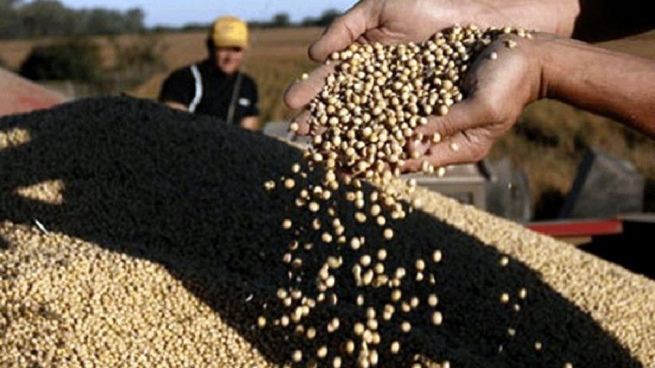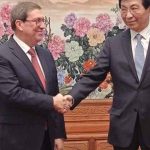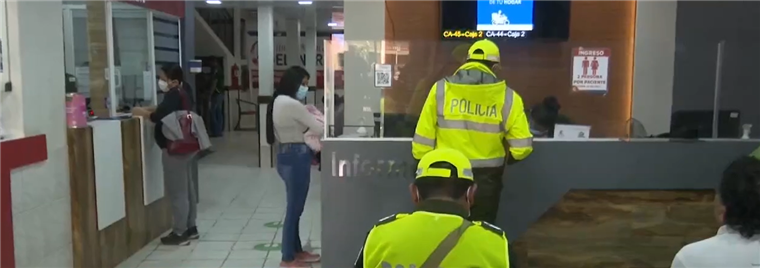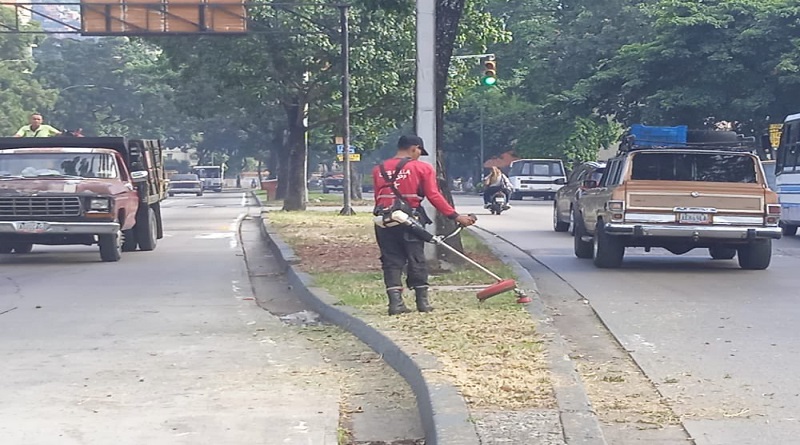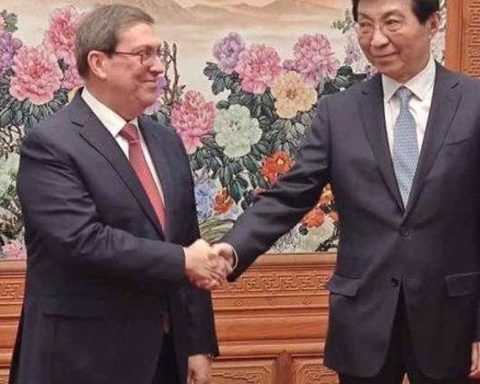The soybean producer will be “the big winner” with the temporary implementation of a special exchange rate for exports of the oilseed, according to the opinion of the business sector linked to foreign trade and biotechnology, as well as by governors of producing provinces of that grain and national officials.
The national government formalized the creation “in an extraordinary and transitory manner” of the Export Increase Program, by which it is applied an exchange rate of $200 per dollar for soybean exports with the aim of accumulating foreign currency and reinforcing the reserves of the Central Bank, through Decree 576/2022 published this Monday in the Official Gazette.
The president of the Chamber of Oil Industries of Argentina (Ciara), Gustavo Idígorasassured that the decision means a “relief” for his sector and remarked that “the big winner is the producer”, since he “receives the full price”for which he stated that “whoever sells in September is going to have a resounding benefit.”
“Surely there will be a greater flow in the sale of soybeans,” he stated in statements to LT9 of Santa Fe and specified that “for the first time, we are going to have a price similar to that of Paraguay, Uruguay or Brazil, the normal market price.
The presidents of the Argentine Rural Society (SRA), Nicolás Pino, and the Agrarian Federation (FAA), Carlos Achetoni, Both members of the Liaison Table expressed objections to the Government’s decision, although they considered that it could represent “a first step” in their demands.
“This is not even because the people who sold last week or those who sold there for the harvest in March or April, do not have this temporary benefit this month,” Pino questioned in dialogue with Radio Rivadavia, but se was favorable to the measure being “a first step towards normality” for the producer to charge the “full price” of the product.
Achetoni maintained in dialogue with Radio del Plata that “it is not a bad measure for those who have soybeans” but that “it is a bad measure for those who do not have soybeans or have other types of production.”
“It should be something that encompasses all productions and provides conditions for all“, he evaluated, for understanding that a measure “only for this product generates tensions in the regional economies that are quite complicated.”
In this regard, it was also stated the executive director of Syngenta for Latin America South, Antonio Aracrefor whom the measure represents “a very significant economic incentive for the producer, of the order of 50%”.
In statements to Telem Radio, He stressed that it is an instrument that will be applicable during September “as long as the price is settled and set before the 30th, although shipments or logistics may take a little longer.”
Aracre also commented that “the decision marks a turning point” in the government’s relationship with that sector, which means “a gesture of rapprochement, conciliation” within the framework of a “slightly ambivalent relationship.”
The measure was announced on Sunday by the Minister of EconomySergio Massa, after being agreed with the main exporting complexes, which they committed to sell soybeans and derived products for at least US$ 5,000 millionof which “a settlement of US$ 1,000 million is expected in the first 72 hours of validity” of the measure, that is, from today until Wednesday.
Adherence to the Program “will be voluntarybeing able to access the same the subjects that have exported in the last 18 months immediately prior to the validity of this decree, the manufactures of soybeans and derivatives”, it was indicated in the decree.
The regulations authorize the Ministry of Economy to issue bills in dollars at 10 years “for up to an amount that covers the difference in assets for the operations of this decree that occurred to the Central Bank.”
The Secretary of Agriculture, Juan José Bahillomaintained that the measure is “very good for the agricultural sector”, because he assured that “it improves the income of producers by approximately 40%”.
“The response given by the Government to the sector is added to that of cutting biodiesel and beef exports” and it is “a very good decision by our government to improve the income of producers,” he added in statements to Télam Radio.
On your side, the Secretary of Industry, José Ignacio de Mendigurenmaintained that the measure was the result of a negotiation in which “the entire chain has participated”, and highlighted that many actors in the sector “They predicted that the income” of foreign exchange was going to be greater than the initially estimated US$ 5,000 million.
In the same line, the governor of the province of Buenos Aires, Axel Kicillofasked that producers and exporters accompany this “effort to strengthen reserves”, while his chief of staff, Martín Insaurraldewho stated on his Twitter account that “the announced measures will undoubtedly strengthen the guiding principles of the economy that were raised when assuming: strengthening of reserves, trade surplus and development of the economies of the interior.”
The measures announced today by @SergioMassa Without a doubt, they will strengthen the guiding principles of the economy that were raised when assuming: strengthening of reserves, trade surplus and development of the economies of the interior.@alferdez@CFKArgentina pic.twitter.com/lepwuDLXmn
– Martín Insaurralde (@minsaurralde) September 4, 2022
Also the governor of Entre Ríos, Gustavo Bordet, described as “a key boost” the creation of the Export Increase Program, “which will help producers on the one hand, and the country’s economy on the other.”
Through his social networks, Bordet said that it is “essential” that producers and the agribusiness sector “have the support” of the national government, with “clear and simple mechanisms and rules.”
The measures announced by @SergioMassa they are a key boost for exports from the agribusiness sector that will help producers, on the one hand, and the country’s economy, on the other.
– Gustavo Bordet (@bordet) September 5, 2022
